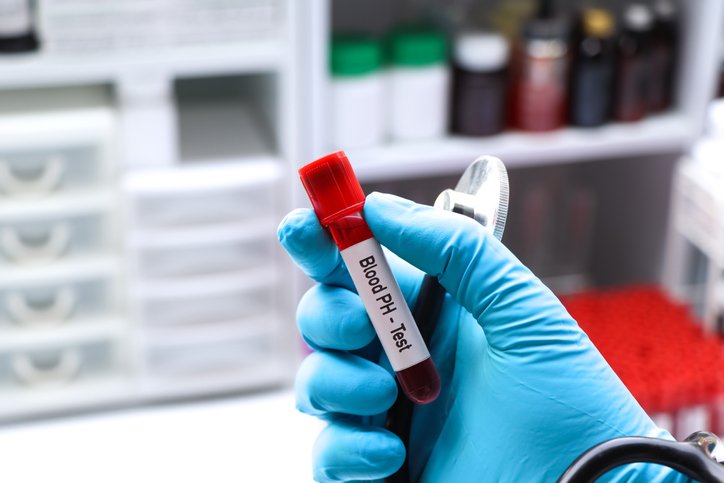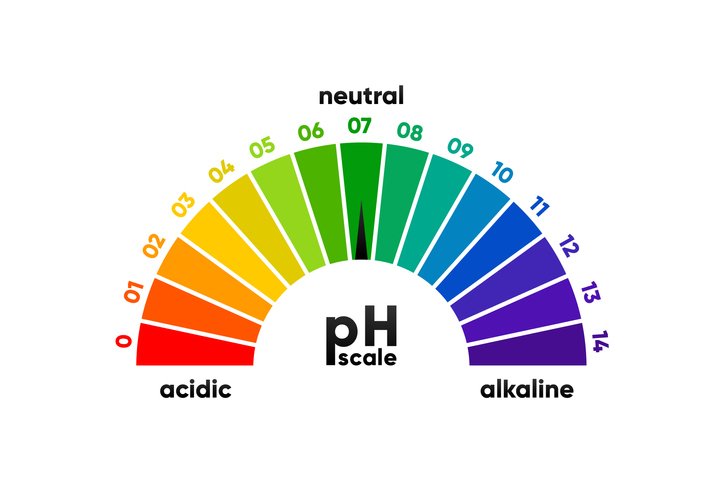The Myth of Changing Blood PH with Diet: Debunking Common Misconceptions
Maintaining a balanced PH level in the body is often considered crucial for good health. However, the concept of PH balance has led to several dietary trends and fads that claim to affect the PH of our blood. It is generally believed that a slightly alkaline body PH is healthy, but the persistent myth that we can significantly alter our blood PH through diet alone needs to be debunked. In this post, I will delve into the science behind blood PH, the body's complex mechanisms for regulating it, and explain why diet alone cannot substantially change this vital parameter and could cause problems like tooth decay and demineralization.
Understanding Blood PH
Understanding the myth of altering blood PH through diet requires knowledge of what PH is and how it relates to the human body. PH stands for the potential of hydrogen and measures the acidity or alkalinity of a solution, ranging from 0 (extremely acidic) to 14 (highly alkaline), with 7 being neutral. Our blood has a PH level between 7.35 and 7.45, which means it's slightly alkaline. 1
The Regulation of Blood PH
The human body works hard to keep the PH level of the blood within a narrow range because even slight changes can be dangerous. The bicarbonate buffering system, consisting of carbon dioxide (CO2), bicarbonate ions (HCO3-), and carbonic acid (H2CO3), is mainly responsible for regulating blood PH. The lungs and kidneys, which are essential organs, play a crucial role in maintaining this critical balance.
The respiratory system plays a crucial role in regulating the levels of CO2 in the blood by controlling the rate and depth of breathing. When CO2 levels increase, the body increases respiration to expel the excess CO2, thereby reducing the acidity in the blood. Conversely, when CO2 levels decrease, the body slows down respiration to retain CO2 and prevent excessive alkalinity.
Renal Regulation: The kidneys play a crucial role in regulating the levels of bicarbonate ions in the bloodstream, which is important to maintain the body's PH balance. They are capable of either excreting or reabsorbing these ions, depending on the body's needs. By doing so, the kidneys can keep the body's PH levels stable in the long run through a complex process. 2
Considering the robust regulatory systems in place, it is apparent that any dietary changes aiming to affect blood PH would have to significantly alter the PH of the body's internal fluids, which is challenging, if not impossible, to achieve, especially over long periods.
Diet and Blood PH
Let's examine the claims made by advocates of "alkaline diets" and other dietary trends that suggest food can alter your blood PH.
Many proponents of alkaline diets classify foods as either acidic or alkaline based on the residue they leave after digestion. Foods such as lemons and vinegar are considered acidic, while vegetables and fruits are classified as alkaline. The basic premise of an alkaline diet is that consuming more alkaline foods will help to reduce the acidity in your body.
Urinary PH: The PH of your urine can be affected by what you eat. If you consume foods with a high alkaline load, it can make your urine more alkaline. However, this doesn't necessarily mean that your blood PH will be affected. Your kidneys regulate the PH of your blood separately from your urine PH. Keeping the PH of your blood stable is more important for your body than that of your urine.
Short-Term Effects: It's important to note that even though a diet may impact your blood PH levels slightly, any changes that occur are most likely temporary. The body has several buffering mechanisms, with the bicarbonate system being the primary one, that act swiftly to correct any deviations from the ideal blood PH. This implies that any changes in blood PH levels resulting from dietary modifications would be short-lived.
Lack of Scientific Support: There needs to be more scientific evidence to support the idea that an alkaline diet can significantly influence blood PH. Most research in this field focuses on the impact of diet on urine PH rather than blood PH.
Potential Health Risks: Prolonged adherence to extreme alkaline diets can lead to nutrient deficiencies and imbalances in the body, resulting in adverse health effects. Pursuing an altered blood PH through diet is an imprudent approach. 3 Many people sip vinegar or lemon water all day, thinking their blood will be more alkaline. Many of these patients present with varying levels of tooth demineralization. This is because a PH of 5.5 will cause mineral loss in teeth. Pure lemon juice is 10,000 to 100,000 times more acidic than water. 1
Conclusion
It is a common belief that our blood PH can be altered by the food we eat. However, this is a myth without scientific backing. Our body's respiratory and renal systems work tirelessly to maintain a stable and healthy PH level in the blood. Although diet can affect urine PH, it does not directly impact blood PH.
Those advocating for an alkaline diet or PH-altering dietary trends should be cautious. Extreme dietary measures can have adverse health consequences. A nutrient-dense diet low in processed carbohydrates and seed oils is essential for overall health. It is best to rely on evidence-based practices and seek guidance from healthcare professionals to maintain good health.
It is important to understand that the idea of changing blood PH through diet is an oversimplification of a complex biological process. At worst, it is a misleading and potentially harmful concept. Let us prioritize our health and well-being by focusing on a nutrient-dense diet low in processed carbohydrates and seed oils.



